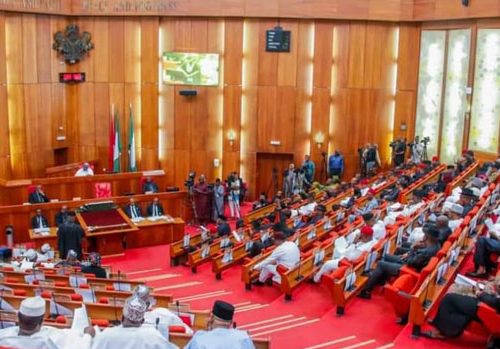The Senate on Thursday passed a bill seeking an upward review of the benefits of judicial officers.
The bill, to be signed into law by President Bola Tinubu, will see the Chief Justice of Nigeria earn N4.2 million monthly.
The CJN, by the provisions of the bill, is also entitled to N51.16 million annual regular allowances or N4.26 million monthly regular allowances, bringing the total earnings for the nation’s number one law officer to about N5.39 million per month.
According to a breakdown of the bill, the Chief Justice of Nigeria is entitled to N13.46 million annual basic salary or N1.12 million monthly basic salary.

The CJN is also entitled to non-regular allowances of N6.73 million Leave Allowance (when applicable), N142,500 Duty Tour Allowance (per night), $2,000 estacode (per night), N80,78 million severance gratuity (after successful completion of tenure) and N53.85 million as motor vehicle loan (to be repaid before expiration of tenure), while Professional Development Assistant is to be paid from the NJC pool.
Though the bill was unanimously embraced, some lawmakers argued that in the face of the current economic hardship, salaries/remuneration of Nigerians in other sectors be equally reviewed.
Also Read:
- 80 deaths reported from Lassa fever in 11 states in one week
- Akinnola to Babangida: You lied about Dele Giwa’s death
- Jigawa: Bus fire incident claims four lives, 10 hospitalised
- Fire destroys property worth millions of Naira in Ibadan
- We’ve installed speed cameras on Third Mainland Bridge — FG
President Tinubu had in March 2024 written the Senate to consider an executive bill seeking the review of salaries, allowances and official benefits of judicial officers.
The President’s request was contained in a letter read by the Senate President, Godswill Akpabio, during the plenary on Wednesday.
The executive bill is titled: “Judicial office holders, salaries and allowances, etc, bill 2024.”
In the letter, Tinubu said the bill, when approved, would generate a new legal framework for the remuneration of judicial officers to improve their welfare.


